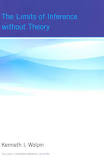
단행본
(The) Oxford handbook of qualitative research
- 청구기호
- 001.42 OXF2014
- 발행사항
- Oxford ; New York : Oxford University Press, 2015
- 형태사항
- 756 p
- 서지주기
- Includes bibliographical references and index
- ISBN
- 9780190221829
- 분류기호
- 듀이십진분류법->001.42
소장정보
| 위치 | 등록번호 | 청구기호 / 출력 | 상태 | 반납예정일 |
|---|---|---|---|---|
이용 가능 (1) | ||||
| 한국노동연구원 | 00008342 | 대출가능 | - | |
이용 가능 (1)
- 등록번호
- 00008342
- 상태/반납예정일
- 대출가능
- -
- 위치/청구기호(출력)
- 한국노동연구원
책 소개
The Oxford Handbook of Qualitative Research presents a comprehensive and student-friendly overview of the field of qualitative research and is intended for students of all levels, faculty, and researchers across the social sciences. It provides strong focus on methods instruction with coverage of theoretical approaches, analysis, writing, evaluation, and the politics of research.
The Oxford Handbook of Qualitative Research presents a comprehensive overview of the field of qualitative research. It is intended for students of all levels, faculty, and researchers across the social sciences. The contributors represent some of the most influential and innovative researchers in the field as well as emerging scholars. This handbook provides a broad introduction to the field of qualitative research to those with little to no background in the subject, while simultaneously providing substantive contributions to the field that will be of interest to even the most experienced researchers. It serves as a user-friendly teaching tool suitable for a range of undergraduate or graduate courses, as well as individuals working on their thesis or other research projects. With a focus on methodological instruction, this volume offers both a retrospective and prospective view of the field. The first two sections explore the history of the field, ethics, and philosophical/theoretical approaches. The next three sections focus on the major methods of qualitative practice as well as newer approaches (such as arts-based research and internet research); area studies often excluded (such as museum studies and disaster studies); and mixed methods and participatory methods (such as community-based research). The next section covers key issues including data analysis, interpretation, writing and assessment. The final section offers a commentary about politics and research and the move towards public scholarship.
The Oxford Handbook of Qualitative Research presents a comprehensive overview of the field of qualitative research. It is intended for students of all levels, faculty, and researchers across the social sciences. The contributors represent some of the most influential and innovative researchers in the field as well as emerging scholars. This handbook provides a broad introduction to the field of qualitative research to those with little to no background in the subject, while simultaneously providing substantive contributions to the field that will be of interest to even the most experienced researchers. It serves as a user-friendly teaching tool suitable for a range of undergraduate or graduate courses, as well as individuals working on their thesis or other research projects. With a focus on methodological instruction, this volume offers both a retrospective and prospective view of the field. The first two sections explore the history of the field, ethics, and philosophical/theoretical approaches. The next three sections focus on the major methods of qualitative practice as well as newer approaches (such as arts-based research and internet research); area studies often excluded (such as museum studies and disaster studies); and mixed methods and participatory methods (such as community-based research). The next section covers key issues including data analysis, interpretation, writing and assessment. The final section offers a commentary about politics and research and the move towards public scholarship.
목차
Contents: Machine generated contents note: -- Preface -- Patricia Leavy -- 1. Introduction to the Oxford Handbook of Qualitative Research -- Patricia Leavy -- Part One: The Qualitative Tradition -- 2. Historical Overview of Qualitative Research in the Social Sciences -- Svend Brinkmann, Michael Hviid Jacobsen, and Søren Kristiansen -- 3. Philosophical Approaches to Qualitative Research -- Renée Spencer, Julia M. Pryce, and Jill Walsh -- 4. The Centrality of Ethics in Qualitative Research -- Anna Traianou -- 5. Applied Interpretive Approaches -- Sally E. Thorne -- 6. Feminist Qualitative Research: Toward Transformation of Science and Society -- Maureen C. McHugh -- 7. Critical Approaches to Qualitative Research -- Kum-Kum Bhavnani, Peter Chua, and Dana Collins -- 8. De-Colonizing Research Practice: Indigenous Methodologies, Aboriginal Methods, and Knowledge/Knowing -- Mike Evans, Adrian Miller, Peter Hutchinson, and Carlene Dingwall -- Part Two: Field Research and Interview Methods --
Contents: 9. Ethnography -- Anthony Kwame Harrison -- 10. The Purposes, Practices, and Principles of Autoethnographic Research -- Carolyn Ellis and Tony E. Adams -- 11. Museum Studies -- Erica L. Tucker -- 12. Practicing Narrative Inquiry -- Arthur P. Bochner and Nicholas A. Riggs -- 13. Unstructured and Semi-Structured Interviewing -- Svend Brinkmann -- 14. Oral History Interviewing: Issues and Possibilities -- Valerie J. Janesick -- 15. Focus Group Research: Retrospect and Prospect -- George Kamberelis and Greg Dimitriadis -- 16. The Grounded Theory Method -- Antony Bryant -- Part Three: Unobtrusive Methods -- 17. Photography as a Research Method -- Gunilla Holm -- 18. Arts-Based Research Practice: Merging Social Research and the Creative Arts -- Gioia Chilton and Patricia Leavy -- 19. Qualitative Approaches in Internet-mediated Research: Opportunities, Issues, Possibilities -- Claire Hewson -- 20. Comparative-Historical Methods -- Chares Demetriou and Victor Roudometof --
Contents: Part Four: Multi-Method and Participatory Designs -- 21. Case Study Research: In-depth Understanding in Context -- Helen Simons -- 22. Program Evaluation -- Paul R. Brandon and Anna L. Ah Sam -- 23. Community-Based Research: Understanding the Principles, Practices, Challenges and Rationale -- Margaret R Boyd -- 24. Lineages: A Past, Present and Future of Participatory Action Research -- Sarah M Zeller-Berkman -- 25. Qualitative Disaster Research -- Brenda D. Phillips -- 26. Conducting Mixed Methods Research Using Dialectical Pluralism and Social Psychological Strategies -- R. Burke Johnson, Tony Onwuegbuzie, Susan Tucker, and Marjorie L. Icenogle -- Part Five: Analysis, Interpretation, Representation and Evaluation -- 27. Coding and Analysis Strategies -- Johnny Saldaña -- 28. Computer Assisted Analysis of Qualitative Research -- Christina Silver and Ann F. Lewins -- 29. Interpretation Strategies: Appropriate Concepts -- Allen Trent and Jeasik Cho --
Contents: 30. Writing up Qualitative Research -- Jane F. Gilgun -- 31. Evaluating Qualitative Research -- Jeasik Cho and Allen Trent -- 32. The Politics of Research -- Michael D. Giardina and Joshua I. Newman -- 33. Content Analysis -- Lindsay Prior -- Part Six: Conclusion -- 34. A Brief Statement on The Public and the Future of Qualitative Research -- Patricia Leavy.
Summary: "The Oxford Handbook of Qualitative Research presents a comprehensive and student-friendly overview of the field of qualitative research and is intended for students of all levels, faculty, and researchers across the social sciences. It provides strong focus on methods instruction with coverage of theoretical approaches, analysis, writing, evaluation, and the politics of research"--



